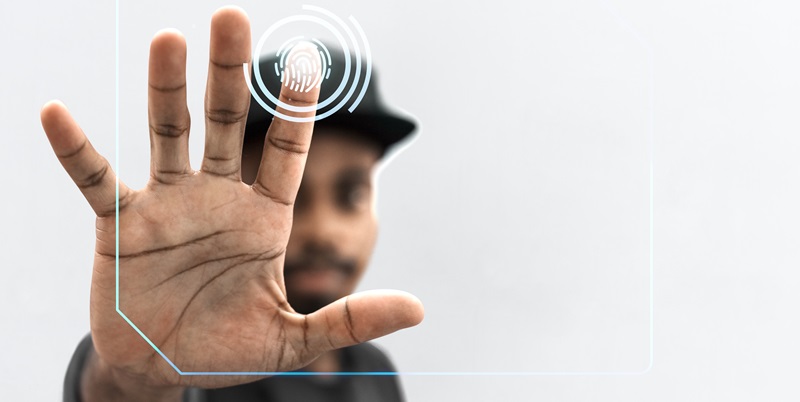The launch of the Biometric School ID Program by IDEX Biometrics and Vasmobile marks a significant step towards integrating advanced technology into the educational and financial systems of African students. This program, known as SkoolID, is initially being introduced in Kenya with plans for potential expansion across various African countries. The program is valued at $1.4 million, and the initial production order is set to begin delivery in the fourth quarter of 2024. The SkoolID program aims to enhance security and convenience for students by using biometric technology for identification, payments, and access to school facilities.
Transforming Educational Systems with Biometric Technology
Enhanced Security and Convenience for Students
The SkoolID system stands out as a comprehensive solution designed to address multiple aspects of student life by leveraging biometric technology. One of the primary benefits of this system is the significant enhancement in security it offers for students. By utilizing biometric identifiers, which are unique to each individual, the SkoolID card ensures that only the rightful owner can access their identification and financial details. This feature mitigates the risk of ID theft and unauthorized access, providing a safer environment for students.
Beyond security, the SkoolID card is engineered to offer unmatched convenience, eliminating the need for students to carry cash or multiple cards. The biometric card will enable students to effortlessly make cashless payments for cafeteria meals, books, and other school-related expenses. By consolidating various functions into a single card, the SkoolID simplifies student life and reduces the chances of losing important items, which is especially beneficial for younger students.
Integration into School Facilities and Health Monitoring
Another critical component of the SkoolID program is its integration into school facilities and health monitoring systems. The biometric card will grant students access to various school facilities, such as libraries, labs, and dormitories, through secure entry points. This access management system ensures that only authorized individuals can enter specific areas, enhancing the overall security on campus. Moreover, by recording entries and exits, the system helps monitor attendance accurately, providing valuable data to administrators.
Additionally, the SkoolID card includes features for monitoring students’ health insurance status. This integration is pivotal in ensuring that students receive timely medical attention when needed, thus promoting better health outcomes and reducing absenteeism. In schools where health services are part of the package, the biometric card could streamline the process of accessing these services, making it easier for students to maintain their health.
The Socio-Economic Impact of Biometric Technology in Africa
Addressing Digital and Financial Inclusion
In a continent where a large portion of the population is under 25 years old, the adoption of technologies like SkoolID is crucial. Africa’s young demographic, which comprises about 60% of the population, is increasingly seeking digital solutions that match their lifestyle and needs. Biometric technology introduces a secure, efficient, and modern alternative to traditional financial and identification systems, thus fostering greater digital and financial inclusion.
By enabling cashless transactions, the SkoolID aims to reduce the reliance on physical cash, which can be insecure and impractical. This shift not only makes financial transactions safer but also aligns with broader global trends toward digital payment systems. As students grow accustomed to using these technologies, they are better prepared for the digital economy, which can lead to enhanced job prospects and economic mobility in the long term.
Enhancing Educational Infrastructure
The SkoolID program is not just about financial transactions; it also represents a significant investment in educational infrastructure. Schools adopting biometric systems indicate a commitment to modernizing their operations and providing students with an environment that equips them with 21st-century skills. This technological enhancement can attract more students to educational institutions, as parents and guardians see the value in an advanced, secure, and efficient learning environment.
Moreover, the integration of biometric technology can streamline administrative processes, reducing the time and resources spent on tasks like attendance tracking and health record maintenance. These efficiencies enable school administrators to focus more on educational outcomes and less on logistical challenges, thereby improving the overall quality of education.
Strategic Partnership and Future Prospects
Collaboration Between IDEX Biometrics and Vasmobile
The partnership between IDEX Biometrics and Vasmobile symbolizes a strategic collaboration aimed at revolutionizing traditional ID and payment systems in educational settings. By combining their expertise, these companies are setting a new standard for what educational and financial systems can achieve when augmented by biometric technology. IDEX Biometrics provides the sophisticated card platform, while Vasmobile ensures the cards are compatible with existing digital payment infrastructures, particularly through its integration with the M-Pesa payment network.
This strategic alliance aims to create a seamless user experience for students and educational institutions alike. By ensuring compatibility with widely-used payment networks, the SkoolID system enhances its practicality and acceptance, making it an attractive option for schools across the continent. The companies’ collaborative approach underscores the potential for public-private partnerships to drive technological innovation in education.
Potential for Expansion Across Africa
The introduction of the Biometric School ID Program by IDEX Biometrics and Vasmobile is a notable advancement in both educational and financial sectors for African students. Dubbed SkoolID, this initiative is first being launched in Kenya with future plans to expand to other African nations. With a project value of $1.4 million, the first production order is slated for delivery in the fourth quarter of 2024. SkoolID leverages biometric technology to improve the security and convenience of students’ educational experiences, enabling biometric identification for payments, access to school buildings, and more. The inclusion of advanced technology in the SkoolID program aims to streamline day-to-day school operations and provide a secure environment, ensuring that children can focus on learning without concerns about safety. This program signifies a significant leap forward in integrating technology into education, which could potentially set a new standard for schools globally, initiating a wave of similar technological adaptations in education systems worldwide.

